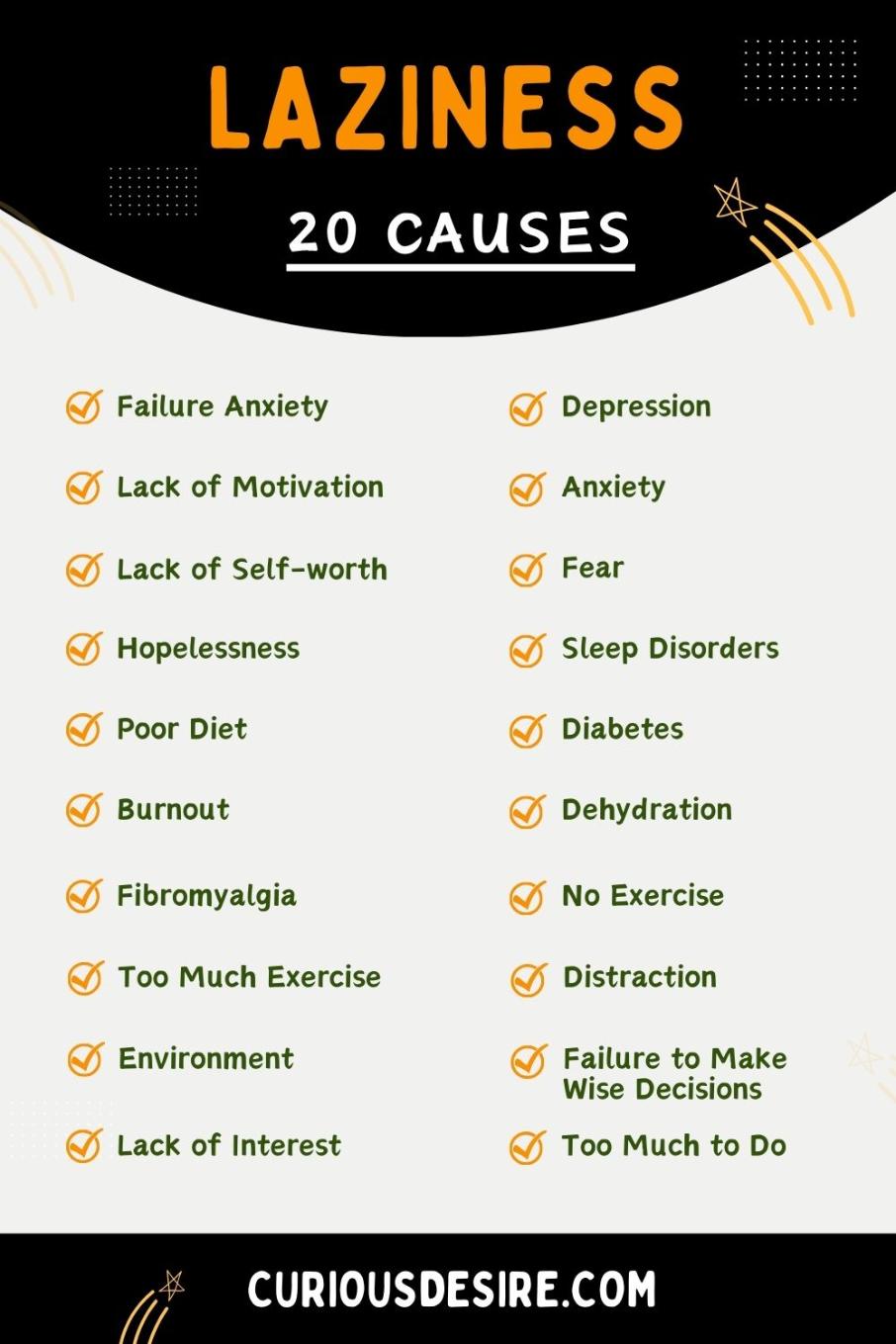Laziness, a common experience, happens when we don’t feel like doing things that require effort. It shows up as procrastination, a lack of motivation, and a general unwillingness to get things done.
Laziness can come from various reasons, like feeling afraid, not being motivated, or facing health issues.
This overview will explore these factors, helping to understand laziness and suggesting ways to break free from it for a more productive and satisfying life.
Here are the 5 most common causes of laziness:
- Lack of Motivation
- Hopelessness
- Failure to Make Wise Decisions
- Too Much to Do
- Lack of Interest
Cause 1: Failure Anxiety
Failure anxiety arises from the fear of falling short of expectations, leading to procrastination and a sense of laziness. This fear often stems from perfectionism or past experiences of criticism.
Overcoming failure anxiety involves reframing the notion of failure as an opportunity for growth. Establishing realistic expectations and breaking down tasks into smaller, manageable steps can make the overall goal seem less daunting.
Cause 2: Depression
Depression can manifest as a profound lack of motivation and energy, contributing to feelings of laziness. Coping with depression often requires professional therapy and medication.
Establishing a daily routine, even with small achievable goals, can help individuals gradually regain a sense of purpose. Engaging in activities that once brought joy, even if on a smaller scale, can provide a sense of accomplishment.
Building a support network and communicating openly about one’s struggles are essential for overcoming the isolating effects of depression.
Cause 3: Lack of Motivation
A lack of motivation often arises when individuals feel unclear about their goals or face obstacles that seem impossible to overcome. Identifying personal values, and setting realistic can reignite motivation.
Connecting tasks to personal interests and finding intrinsic sources of motivation, such as a sense of accomplishment, can make the journey more enjoyable.
Establishing a routine that includes both work and enjoyable activities helps maintain a balance, preventing burnout and sustaining motivation.



